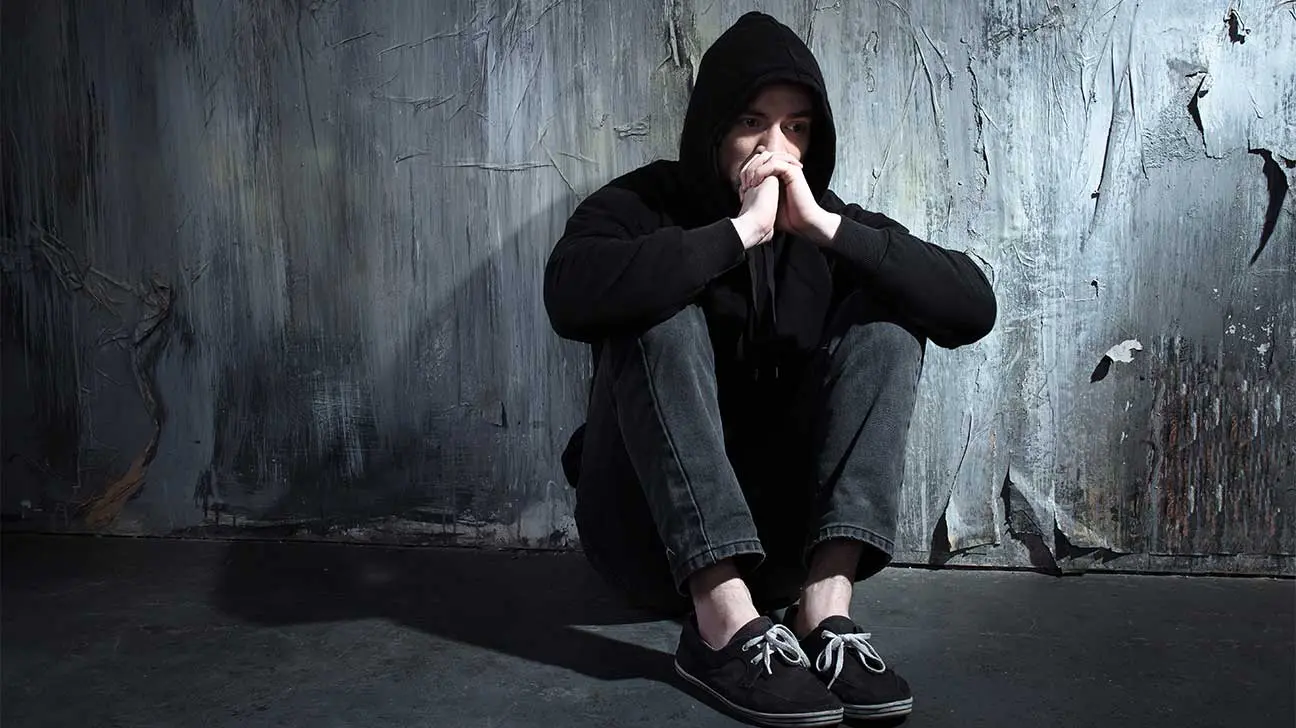
Heroin is a strong, illegal opioid that is generally injected but can be snorted or smoked. It produces strong feelings of euphoria and a rushing high.
There are many ways that heroin impacts a person’s mental health and physical well-being.
Initial signs of heroin use can include the following developments:
- thin, pale physical appearance
- poor hygiene
- lack of motivation or responsibility
- a decline in work or school performance
- missing valuables or money
- changes in behavior like lying, sneaking, stealing
- presence of scabs or needle marks (“track marks”) on the body
- presence of drug paraphernalia like syringes
- using slang words related to heroin
- trouble with the law
A person that uses heroin increases their long-term and short-term risk factors for immediate physical harm and lasting impact on behavioral health and holistic well-being.
A person that is currently using heroin may present with symptoms of heroin intoxication, heroin overdose, or heroin withdrawal symptoms.
Physical Signs Of Heroin Use
A person that uses heroin will expect to feel the euphoria, painlessness, and high rush that opioid drugs provide by binding to opioid receptors in the brain.
This central nervous system depressant will also cause the body to suppress vital systems like the heart, lungs, and circulatory system.
Short-Term Effects
The effects of heroin use cause a number of symptoms, both short- and long-term.
A person that has recently used heroin may experience side effects including:
- clouded thinking
- slurred speech
- “nodding” between consciousness and semi-consciousness
- dry mouth
- drowsiness
- flushed skin
- heavy feeling arms and legs
- nausea
- vomiting
- slowed heart rate and low blood pressure
- severe itching
- “high” eyes (heroin eyes)
Long-Term Symptoms
Long-term effects of heroin abuse can be obvious to the outward observer.
A person that has used heroin for a long time may also have mental health disorders that complicate some effects and make it difficult for them to seek help.
Long-term effects and signs of heroin use include:
- signs of collapsed veins or damaged nose tissue
- pronounced weight loss
- poor hygiene
- insomnia
- sexual dysfunction in men
- irregular menstrual cycles in women
- infection of the pericardium and heart valves
- abscesses (swollen tissue filled with pus)
- constipation
- stomach cramping
- liver disease
- kidney disease
- lung complications that include pneumonia
- development of mental disorders like depression and antisocial personality disorder
- scars or scabs on the arms from heroin injection (heroin track marks)
Signs Of Heroin Withdrawal
Many signs of heroin addiction and dependence that many people associate with its use are visible when a person’s body responds to the absence of heroin in their system (withdrawal).
Physical dependence and emotional addiction can cause severe symptoms.
It is important to remember that addiction results in psychological effects like cravings, whereas dependence withdrawals occur as the body’s response to not having heroin.
Some effects of heroin withdrawal and addiction can include:
- bad mood
- restlessness
- general dissatisfaction (dysphoria)
- runny nose
- insomnia
- depression
- anxiety
- yawning
- heroin cravings
- body aches
- diarrhea
- irritability
- cold flashes/goosebumps
- nausea and vomiting
Heroin Overdose Signs
When a person has taken more heroin than their body can effectively process, they may experience the effects of a heroin overdose.
A person that has taken other opioids may easily miscalculate a tolerable heroin dosage and overdose. Similarly, a person that has stopped taking heroin may overdose if they ingest heroin according to old tolerances.
People that take heroin with other central nervous system depressants like alcohol, benzodiazepines, or other opioids like fentanyl increase their risk of fatal overdose results.
As a medical emergency, a heroin overdose can be recognized by some of the following signs:
- large, unresponsive pupils
- loss of consciousness
- shallow or irregular breathing
- slowed heart rate
- low blood pressure
- blue mouth or fingernails
- cramps and muscle spasms
The lack of oxygen and slowed heart rate may cause permanent brain damage, systemic organ damage, or death.
Addiction Treatment For Heroin Abuse
If you or a loved one is using heroin, we’re here to help with the recovery process. The risks of any opiate use are severe — and it can be dangerous to try a self-detox.
Call one of our addiction treatment specialists today to learn more about the range of treatment centers for heroin addiction.
Inpatient treatment facilities can offer a safe environment to detox, undergo therapy, and acclimate to sober living.
The road to recovery from opioid addiction is a long process, but we’re here to help you or your family member along. Call us today to get started. You won’t regret it.
Addiction Resource aims to provide only the most current, accurate information in regards to addiction and addiction treatment, which means we only reference the most credible sources available.
These include peer-reviewed journals, government entities and academic institutions, and leaders in addiction healthcare and advocacy. Learn more about how we safeguard our content by viewing our editorial policy.
- U.S. National Library of Medicine: MedlinePlus — Heroin
https://medlineplus.gov/heroin.html - Medscape — Heroin Toxicity
https://emedicine.medscape.com/article/166464-overview - National Institute On Drug Abuse — Heroin DrugFacts
https://www.drugabuse.gov/publications/drugfacts/heroin


